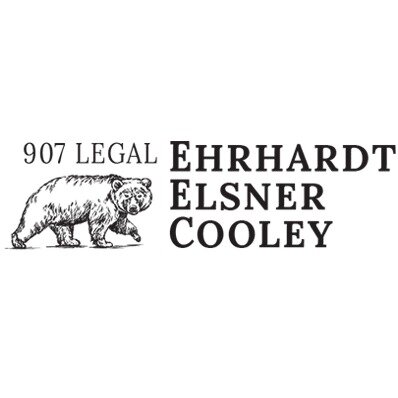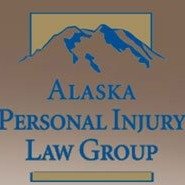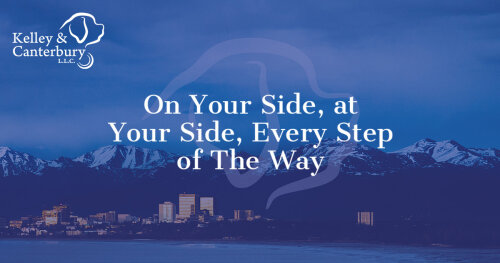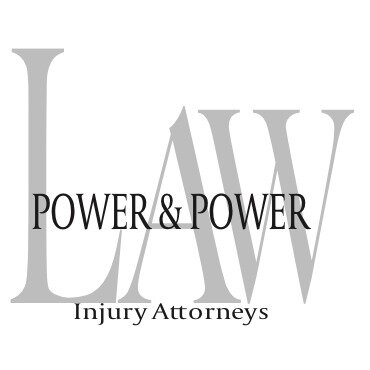Best Work Injury Lawyers in Alaska
Share your needs with us, get contacted by law firms.
Free. Takes 2 min.
Or refine your search by selecting a city:
List of the best lawyers in Alaska, United States
About Work Injury Law in Alaska, United States
Work injury law in Alaska covers the legal rights and responsibilities of both employees and employers when a worker is injured on the job. These injuries can range from minor accidents to severe or life-altering events. Alaska operates under a workers’ compensation system, which is designed to provide medical care and compensation for lost wages to employees who suffer job-related injuries or illnesses. The core principle is that workers give up the right to sue their employer in exchange for receiving benefits, regardless of who was at fault for the injury. This area of law seeks to balance the needs of injured workers with the interests of employers and the broader economy.
Why You May Need a Lawyer
While the workers’ compensation system is meant to streamline benefits to injured workers, navigating the process can be complex and sometimes adversarial. You may need a lawyer in the following situations:
- If your claim is denied or disputed by your employer or their insurance company.
- If you are pressured to return to work before you are medically ready.
- If you believe you are not receiving the full benefits you are entitled to, such as compensation for lost wages or necessary medical treatments.
- If your injury results in permanent disability, affecting your ability to work in the future.
- If you suspect your employer retaliated against you for filing a workers’ compensation claim.
- If you are offered a lump sum settlement and are unsure if it is fair.
- If a third party (other than your employer) is partially responsible for your injury, allowing for a separate personal injury claim.
An experienced work injury lawyer can help you understand your rights, gather evidence, negotiate with insurance companies, represent you at hearings, and ensure you receive the benefits you deserve.
Local Laws Overview
Alaska’s workers’ compensation laws, governed primarily by the Alaska Workers’ Compensation Act, set out the process and requirements for work injury claims. Important aspects of Alaska law include:
- Employers are generally required to carry workers’ compensation insurance if they have one or more employees.
- Most workers, including part-time and seasonal employees, are covered.
- Injuries must be reported to employers as soon as possible, and a formal report must be filed within 30 days of the injury.
- Medical benefits, such as doctor visits and surgeries, are covered if the injury is work-related.
- Lost wage benefits are paid out if you are unable to work or if your earning ability is reduced due to injury.
- Permanent disability and rehabilitation benefits may be available if you cannot return to your previous work.
- Retaliation for filing a workers’ compensation claim is illegal.
- Disputes may be resolved before the Alaska Workers’ Compensation Board or through mediation.
It is essential to follow all notification and filing requirements, as missing a deadline may jeopardize your claim.
Frequently Asked Questions
What should I do immediately after a work injury in Alaska?
Report your injury to your employer as soon as possible and seek medical attention. Proper documentation is essential for your claim.
Are all workplace injuries covered by workers’ compensation?
Most injuries that occur in the course and scope of employment are covered, but there are exceptions for injuries caused by intoxication, intentional self-harm, or violations of company policy.
How long do I have to report my injury?
Alaska law requires you to report your injury to your employer within 30 days, but it is best to report it immediately for a stronger case.
What benefits can I receive through workers’ compensation?
You may be eligible for medical care, temporary or permanent disability payments, vocational rehabilitation, and in some cases, benefits to dependents if a death occurs.
Can I sue my employer for a work injury?
Generally, workers’ compensation is your only remedy against your employer. However, if a third party contributed to your injury, you may be able to pursue a separate personal injury lawsuit.
What if my claim is denied?
You have the right to appeal a denial. A lawyer or the Alaska Workers’ Compensation Board can help you understand your options and next steps.
How much money will I receive for lost wages?
Wage replacement is typically calculated as a percentage of your average weekly wage, subject to maximum and minimum limits set by Alaska law.
Can I choose my own doctor?
In Alaska, you usually have the right to select your own physician after your initial treatment, though some restrictions may apply.
What happens if I cannot return to my previous job?
If your injury prevents you from returning to your prior employment, you may qualify for vocational rehabilitation services to help you find new suitable work.
What should I do if I believe my employer is retaliating against me?
Retaliation is illegal. If you feel you are being punished, contact a workers’ compensation attorney or the Alaska Division of Workers’ Compensation immediately for assistance.
Additional Resources
- Alaska Division of Workers’ Compensation - The state agency that administers workers’ compensation claims and provides information on your rights and responsibilities.
- Alaska Workers’ Compensation Board - Handles disputes between employees and employers or insurers.
- Alaska Bar Association Lawyer Referral Service - Helps you find qualified attorneys experienced in work injury law.
- Legal Aid Services - Organizations that may offer free or low-cost legal assistance to qualifying individuals.
- Occupational Safety and Health Section (AKOSH) - Enforces workplace safety standards and investigates hazardous conditions.
Next Steps
If you have been injured at work in Alaska, here are the key steps to protect your rights and access the benefits you need:
- Immediately report your injury to your employer and seek medical attention.
- Document all aspects of your injury, medical treatment, and communications with your employer or their insurance.
- File a claim with the Alaska Division of Workers’ Compensation if necessary and ensure you meet all deadlines.
- Consult with an experienced work injury attorney if you encounter denials, disputes, or believe you are not receiving appropriate benefits.
- Take advantage of local and state resources for additional information and support.
Remember, workers’ compensation claims can be complex, and legal guidance can help you navigate the process and maximize your benefits. Choosing the right professional support can make a significant difference in your recovery and future well-being.
Lawzana helps you find the best lawyers and law firms in Alaska through a curated and pre-screened list of qualified legal professionals. Our platform offers rankings and detailed profiles of attorneys and law firms, allowing you to compare based on practice areas, including Work Injury, experience, and client feedback.
Each profile includes a description of the firm's areas of practice, client reviews, team members and partners, year of establishment, spoken languages, office locations, contact information, social media presence, and any published articles or resources. Most firms on our platform speak English and are experienced in both local and international legal matters.
Get a quote from top-rated law firms in Alaska, United States — quickly, securely, and without unnecessary hassle.
Disclaimer:
The information provided on this page is for general informational purposes only and does not constitute legal advice. While we strive to ensure the accuracy and relevance of the content, legal information may change over time, and interpretations of the law can vary. You should always consult with a qualified legal professional for advice specific to your situation.
We disclaim all liability for actions taken or not taken based on the content of this page. If you believe any information is incorrect or outdated, please contact us, and we will review and update it where appropriate.
Browse work injury law firms by city in Alaska
Refine your search by selecting a city.
















